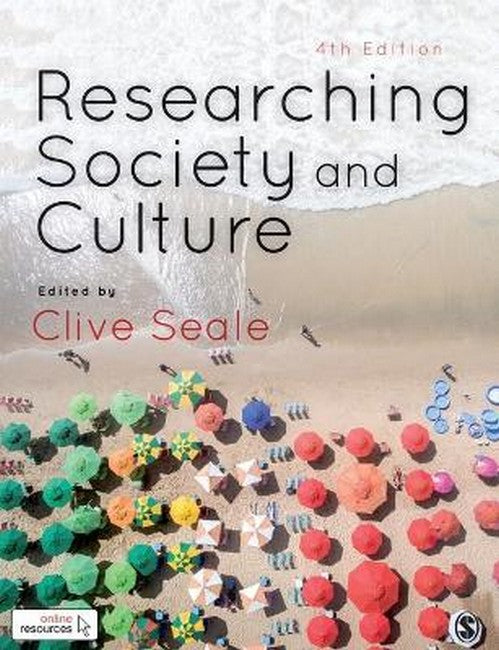Clive Seale has been Professor of Sociology (or Medical Sociology) at Goldsmiths and Queen Mary's (both University of London) and Brunel University. His work has concerned communication in health care and death in modern society. He has published extensively on research methods. His books include Constructing Death: the sociology of dying and bereavement (Cambridge University Press, 1998), The Quality of Qualitative Research (Sage, 1999), Media and Health (Sage, 2003) and Gender and the Language of Illness (Palgrave-Macmillan, 2010, with Jonathan Charteris-Black). Recently, he has turned to fiction, publishing a novel, Interrogating Ellie (Cloiff Books, 2015) using the pen name Julian Gray. He is currently writing another novel.
Request Academic Copy
Please copy the ISBN for submitting review copy form
Description
Chapter 1: Introduction and guide to using this book - Clive Seale Part 1: Starting out Chapter 2: Philosophy, politics and values - Clive Seale Chapter 3: Research and theory - David Silverman Chapter 4: Ethics and social research - Suki Ali and Moira Kelly Chapter 5: Doing a literature review - Duncan Branley, Clive Seale and Thomas Zacharias Chapter 6: Research questions and proposals - Moira Kelly Chapter 7: Research design - Clare Robinson and Clive Seale Chapter 8: The dissertation - Chetan Bhatt Part 2: Generating data Chapter 9: Sampling - Clive Seale Chapter 10: Questionnaires and interviews - Clive Seale Chapter 11: Questions, measurements and structured observation - Clive Seale Chapter 12: Qualitative interviewing - Bridget Byrne Chapter 13: Focus groups - Fran Tonkiss Chapter 14: Doing ethnography - David Walsh and Clive Seale Chapter 15: Grounded theory - Clive Seale Chapter 16: Doing historical and documentary research - Ben Gidley Chapter 17: Combining qualitative and quantitative methods - Neil Spicer Chapter 18: Digital Social Research - Clive Seale Part 3: Doing Analysis Chapter 19: Preparing data for statistical analysis - Clive Seale Chapter 20: Analysing single variables - Clive Seale Chapter 21: Bivariate analysis - Clive Seale Chapter 22: Causal arguments and multivariate analysis - Clive Seale Chapter 23: Secondary analysis - Clive Seale Chapter 24: Content and text analysis - Clive Seale and Fran Tonkiss Chapter 25: Finding themes in qualitative data - Carol Rivas Chapter 26: Visual analysis - Suki Ali Chapter 27: Discourse analysis - Fran Tonkiss Chapter 28: Analysing conversation - Tim Rapley Chapter 29: Narrative analysis and interpretative phenomenological analysis - Ann Griffin and Vanessa May Part 4: Writing, Presenting, Reflecting Chapter 30: Writing a research report - Carol Rivas Chapter 31: Giving oral presentations - David Silverman Chapter 32: Research quality - Clive Seale
Concise and to the point. This is a highly useful methods book for approaching and teaching research on society and culture from start to finish, between qualitative and quantitative approaches. -- Robert Hafner This brilliant book offers an authoritative expose of all major aspects of empirical social research. The authors balance consideration for detail, necessary for hands-on research, with general methodological discussion, and show how both are necessary to achieve research excellence. -- Rasmus Helles This book has the potential to be a market leader. Seale put together a comprehensive collection of chapters that inspires students to take their classroom examination of methods out into the real world. This book moves ahead of many others by explaining concepts in a way that actively encourages students to engage with them and visualize how they can be used with actual problems. The authors address students directly on a personal level, rather than lecturing, which turns the book into the 'story of methods'. Such an experience means that chapters on theory and ethics draw students into everyday life reassuring them that these are important topics to consider within actual research. -- Grant Coates

